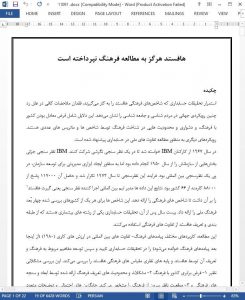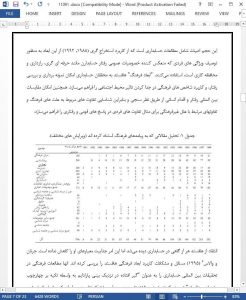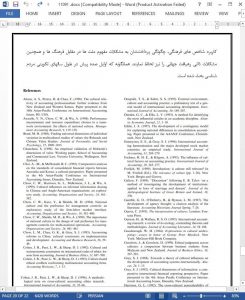Abstract
The continuation of accounting research utilising Hofstede's cultural indices suggests an absence of sufficient consideration for the reasons behind the rejection of such a universalist approach in anthropology and sociology. These reasons include the assumption of equating nation with culture and the difficulty, and limitations on an understanding of culture by means of numeric indices and matrices. Alternative approaches for research on national differences in accounting are suggested.
In 1967, employees in an organization, IBM, were asked to complete an attitude survey. IBM had organized incidental surveys of parts of its organization since 1950, but it was decided to standardize an international survey in order to provide a management tool for organization development. This survey process repeated until 1973, resulting in 117,000 responses from88,000 employees in 66 countries. The results of this data led the head of the international teamconducting the survey, Geert Hofstede, to develop cultural indices. These indices provided four dimensions of national culture for each one of the countries surveyed. Twenty years later, accounting research is one of numerous disciplines which utilize Hofstede’s classification and quantification of cultural differences.
8. After ‘‘Culture’s Consequences...’’
The objective of this report was to examine the utilization of and theoretical foundations for the cultural indices proposed fromresearch on corpo rate values by Geert Hofstede. Hofstede continued for many years making a very significant contribution to studies of organizational cultures, and his scholarship remains within the mainstream theory in international business research and management studies.
The theoretical foundation for his subsequent publication Culture and Organizations—Software of the Mind (Hofstede, 1991) was not derived from a universalist concept of culture, but instead he only briefly sourced the justification for the dimensions of culture to writings of a sociologist, Inkeles, and a psychologist, Daniel Levinson. He had distanced the reification of culture from anthropology as a foundation for his work, apart froma brief reference to Ruth Benedict and Margaret Mead; Ruth Benedict was not mentioned in Culture’s Consequences. Thus, by 1991, Hofstede had found an anthropological foundation for his theory unnecessary; noting ‘‘mainstream anthropology in recent decades has contained itself to marginal groups and to problems which for society as a whole are fairly trivial.











